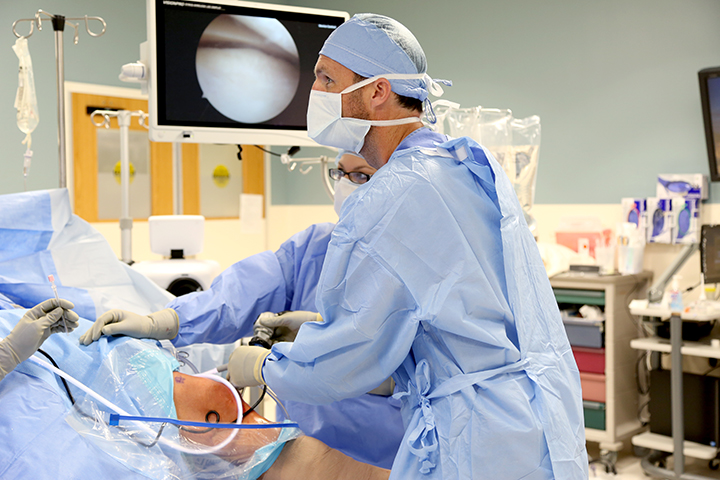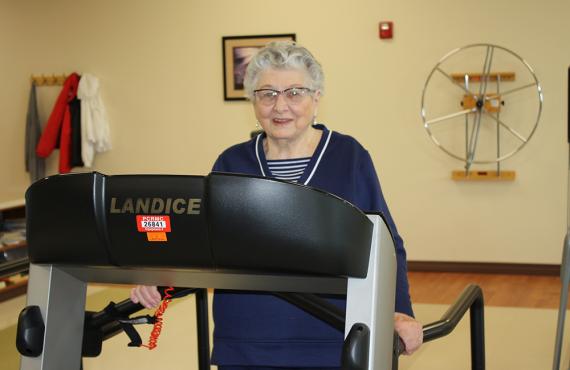Published on July 28, 2022

Read Time: Three Minutes
Did you know? Around 300 total knee replacements are performed annually at Phelps Health.
If you have problems with walking or climbing stairs, or if you have knee pain – even while resting – you may need a knee replacement, which can help relieve pain and restore functionality in your joints.
Your knees can “wear and tear” over time. When the cartilage between your joints wears away, your bones start rubbing together. This condition is known as osteoarthritis.
To help reduce joint pain and damage caused by osteoarthritis, your doctor may recommend either surgical or nonsurgical treatment options. In some cases, medications or injections can help relieve pain, but in other cases, surgery may be the best option.
When determining whether you are a good candidate for knee surgery, your doctor will consider many factors, including your knee’s range of motion, stability and strength. X-rays of your knee also will show the extent of any damage to your joints.
Phelps Health Physician Assistant Brett Clayton, who specializes in orthopedics, said knee replacement surgery may be recommended for individuals who have tried other treatment options that were not successful.
“Good candidates for surgery are [people] who will have improved quality of life after the surgery and will be able to get back to doing some of the things that they love to do, like walking or hiking or bicycling,” Brett said. “Those are all things that people will hopefully be able to do after having a knee replacement.”
Before knee surgery, you will be given anesthesia, or nerve blocks, to numb the area around the knee.
During the surgery, an orthopedic surgeon will make an incision and remove the damaged joint surfaces.
“When we replace a knee joint…we actually are replacing all the surfaces where there's cartilage,” Brett said. “What we do is we cap the surfaces where the [cartilage] used to be in order to get rid of the source of the pain and protect the bone from the lack of cartilage.”
Then, the surgeon will attach an artificial joint, usually made of metal or plastic. After the surgery, you will be taken to recovery.
How long patients stay in the hospital after surgery depends on each individual. Some patients can go home the same day. Most knee replacement patients are able to resume normal activities after several weeks.
Brett said that recovery after a knee replacement does not happen overnight, adding that therapy is a must after surgery.
“There should be an expectation before surgery knowing that it's going to take time to recover, but ultimately you'll be happy with it [your knee replacement] once the recovery has taken place,” he said.
Phelps Health also offers an Orthopedics Joint Camp for patients who are scheduled to have joint surgery. In this class, you will learn about preparing for your surgery, getting the most out of your surgery and rehab therapy tips.
Want Joint Pain Relief?
If knee pain is keeping you from doing activities you love, talk to your doctor about knee replacement surgery. Call Phelps Health Orthopedics at (573) 364-5633.

